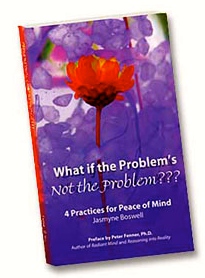“An author of narrative nonfiction must cultivate a voice that conveys their seasoned feelings, beliefs, and judgments. A voice is analogous to a mental track, a mental groove that enables the author to express their protean thoughts.”
― Kilroy J. Oldster
Deciphering Your Distinct Writing Voice~
I remember the first time I heard someone who had read an article I submitted tell me I had a distinct writing voice. I was thrilled, even though I wasn’t sure what that meant. I did some research and this is what I found.
Diction, the individual style in which an author writes, refers to the language choices a writer makes to effectively convey an idea, a point of view, or to tell a story. The words used can help establish a distinct voice and style. When creating a character, diction reflects personal details like age and gender, background, social setting, profession, etc. Here are some examples from MasterClass –
- Mark Twain, The Adventures of Huckleberry Finn. In Mark Twain’s classic tale, Huck Finn, the narrator, is a 13-year-old boy growing up near the Mississippi River in the 1800s. Twain uses a very informal, salt-of-the-earth colloquial diction to establish Finn’s character, his youthfulness, and his background: “I climb up the shed and crept up to my window just before day was breaking. My new clothes was all greased-up and clayey, and I was dog-tired.”
- Jules Verne, Twenty Thousand Leagues Under the Sea. As after walking two hours, we had attained a depth of about 300 yards, that is to say, the extreme limit on which coral begins to form.” Jules Verne is using pedantic diction to establish Arronax an academic who the reader can trust. His speech is literal, concrete, and full of details that help create a sensory experience.
- Charles Dickens, A Tale of Two Cities. Charles Dickens opens his classic story with this line: “It was the best of times, it was the worst of times.” This is an example of abstract diction—the lines reference experience and emotions rather than concrete information. These opening lines build intrigue and pique curiosity, drawing a reader in to find out more.
Along with diction, the syntax is a fundamental part of written language. Whereas diction defines the style of written or spoken language, syntax states the rules for using words, phrases, clauses, and punctuation, specifically to form sentences.
Here is an example of Syntax from Film
- The character Yoda in Star Wars often uses the atypical syntax:
“Rejoice for those around you who transform into the Force. Mourn them, do not. Miss them, do not. Attachment leads to jealousy. The shadow of greed, that is.”
I’ve merely touched on the subject to call attention to a way you can develop and decipher your distinct writing voice. If interested, there are numerous online examples that will help you deepen your discovery. Simply Google the terms and choose from a plethora of examples.
Enjoy!
Jasmyne

